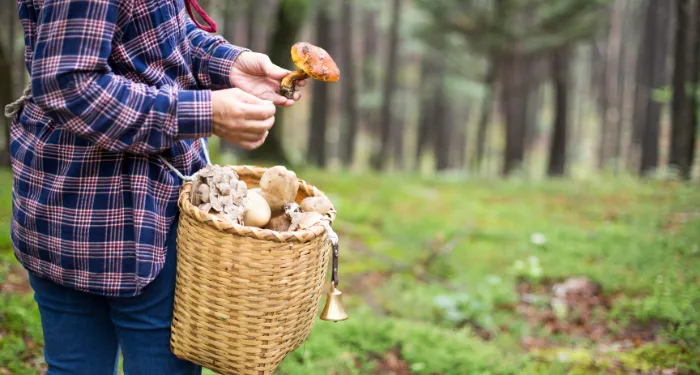
10 Marvelous Mushroom Books
Mycology, aka the study of fungi, is having a moment. From mushroom illustrations as part of the cottagecore aesthetic look to foragers posting their finds on social media and scientists delighting readers with nonfiction mushroom books, the hidden fungi kingdom is suddenly quite popular.
Broadly defined, a fungus, of the kingdom fungi, is a eukaryotic, heterotrophic organism, and while mycology was once treated as a subset of botany, it’s now thought that fungi bear more relation as a kingdom to animals than to plants. What accounts for much of fungi’s fascination is that these organisms can go largely unseen: while some take the form of familiar mushrooms or visible molds, others are located in remote forests or thriving underground.
Fungi, particularly mushrooms, have played long roles in folklore, magic, and medicine, as well as in literature. Mushrooms as a symbol of both healing and of contamination exist in many books, and ancient lore is full of stories about the power of fungi that can be found through foraging. More recently, cultivators and scientists are discovering new uses for fungi in medicine and environmental science, and they’re imagining new ways these organisms might impact our future.
Whether you want to approach the study of mycology from an agricultural, societal, or magical perspective, there is plenty to learn about the often vast networks created by fungi species. The mushroom books below can be just a starting point for amateur mycologists looking to explore this world.
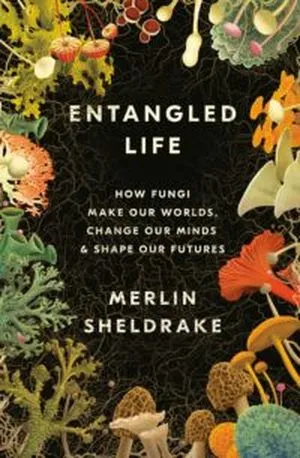
Entangled Life: How Fungi Make Our Worlds, Change Our Minds & Shape Our Futures by Merlin Sheldrake
One of the most well-known titles in the nonfiction mushroom books genre is Sheldrake’s exploration of the (often-unseen) impacts of fungi on our world. Sheldrake gives us an underground view of how fungi networks operate, and you’ll walk away from the book with a whole new appreciation for the species.
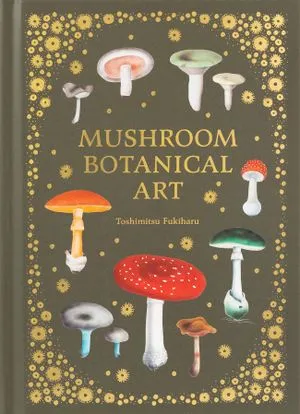
Mushroom Botanical Art by Toshimitsu Fukiharu
For those who love the visual variety of fungi, this is a beautiful collection of mushroom illustrations from 18th and 19th century naturalists. This would make a perfect coffee table book gift for the mushroom lover in your life.
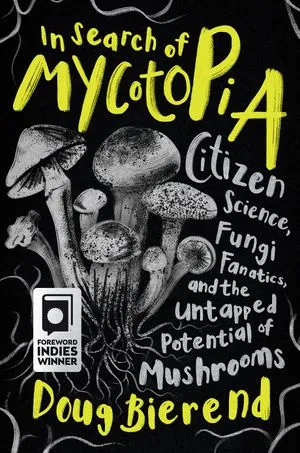
In Search of Mycotopia: Citizen Science, Fungi Fanatics, and the Untapped Potential of Mushrooms by Doug Bierend
In this book, Bierend guides us into the land of mycologists, people who study and cultivate fungi, to share more about the wonderful and weird fungi kingdom. Along the way, he talks to mushroom farmers, foragers, and ecologists, all of whom see untapped potential in the fungi that are all around us.
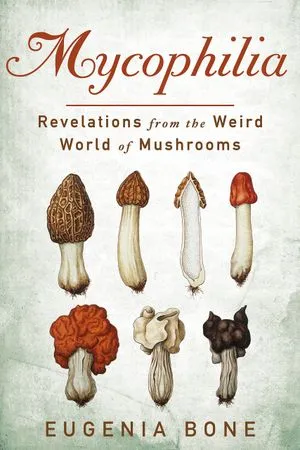
Mycophilia: Revelations from the Weird World of Mushrooms by Eugenia Bone
A great book for anyone looking for an overview of the mycological world, this volume dives into everything from the culinary uses of the mushroom to its history in folklore and religion. Bone examines both the historical uses of mushrooms and how fungi could help us tackle problems in the 21st century.
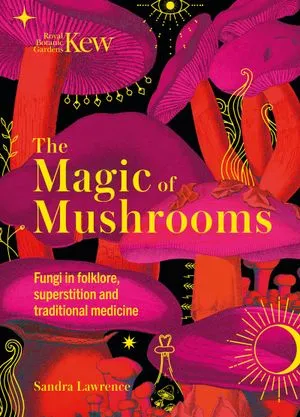
The Magic of Mushrooms: Fungi in folklore, superstition and traditional medicine by Sandra Lawrence
Mushrooms have been at the center of superstition, magic, and folklore for centuries. In this book, Lawrence dives into this history — with help from the archives at Royal Botanic Gardens, Kew — to explore the cultural roles mushrooms have traditionally played.
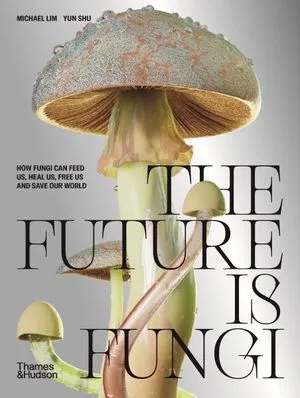
The Future is Fungi: How Fungi Can Feed Us, Heal Us, Free Us and Save Our World by Michael Lim and Yun Shu
The fungi kingdom has survived all five major extinctions, making it a key group of species to study as we figure out how to preserve biodiversity in the future. The authors present various fungi species in the context of their historical medical, spiritual, and culinary uses, as well as provide educational 3D illustrations of different fungi to help the reader learn more about this engaging kingdom.
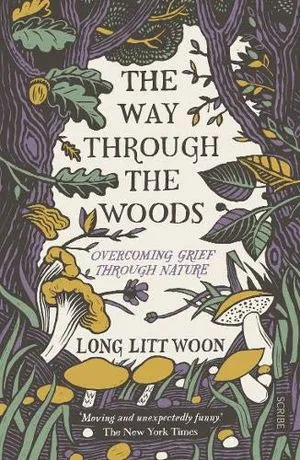
The Way Through the Woods: Overcoming Grief Through Nature by Long Litt Woon
After losing her husband of 32 years, Woon is devastated and unmoored. To begin her healing, she seeks out natural spaces and becomes fascinated with the healing cycles of growth she witnesses there. As Woon learns about the life cycles of many species, including mushrooms, she begins to find her own way through grief.
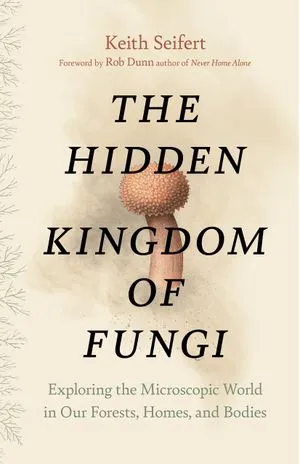
The Hidden Kingdom of Fungi: Exploring the Microscopic World in Our Forests, Homes, and Bodies by Keith Seifert
If you enjoyed Sheldrake’s book and its look at unseen fungi networks, pick up this one next. Seifert gives readers a scientific and microscopic look at fungi through examples as varied as their uses in modern medicine to how fungi might help us unlock the key to accessing renewable energy.
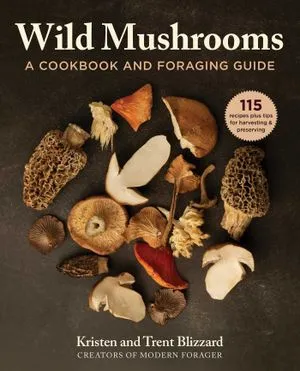
Wild Mushrooms: A Cookbook and Foraging Guide by Kristen Blizzard and Trent Blizzard
For those looking to get into safely foraging and cooking mushrooms, this book is a great place to start. It covers identifying edible mushrooms, cleaning and storing what you collect, and includes recipes for preparing mushrooms, whether foraged or store-bought.
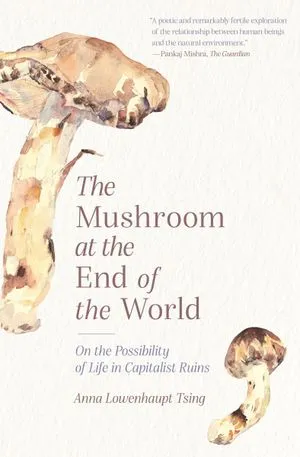
The Mushroom at the End of the World: On the Possibility of Life in Capitalist Ruins by Anna Lowenhaupt Tsing
The matsutake mushroom is full of contradictions. On one hand, it is a Japanese culinary delicacy that can command astronomical prices, but it’s also a weed that nurtures trees and grows in places disturbed by human impact. Through her investigation of the science and economics of the matsutake, Tsing looks at how valuable things can grow and thrive even in the midst of human-caused disruption and makes a moving case for why valuing these species is essential to our survival.
Looking for more fun and fungi-focused reads? Check out eight more mushroom titles and read an exploration of the mushroom as a symbol in the horror genre.














